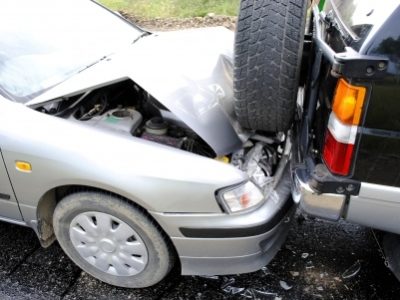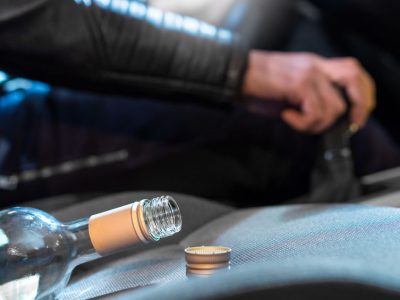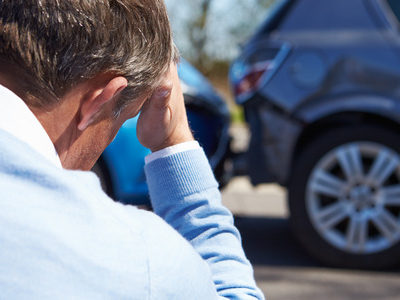

Failure to Secure a Load: Washington State
We have all driven down the freeway and seen debris blowing around due to another driver failing to secure a load. When material of any kind falls off of a vehicle because it isn’t properly secured, it is littering. No person shall throw, drop, deposit, discard, or otherwise dispose of litter upon any public property in the state…whether from a vehicle or otherwise.” (Source: RCW 70.93.060 (1)). According to Washington State Patrol Records, approximately 37 percent of all litter-related citations issued by Washington State Patrol are for a failure to secure a load. An additional 22 percent of citations are issued for debris escaping from loads.
Washington State law RCW 46.61.655 specifically states that “No vehicle shall be driven or moved on any public highway unless such vehicle is so constructed or loaded as to prevent any of its load from dropping, sifting, leaking or otherwise escaping…” Put simply, traveling with an unsecured load is against the law. If any part of your load can escape your vehicle; you can be ticketed — even if it doesn’t escape. If something being hauled on a truck, trailer, or vehicle does fly off or leak out and harms or damages a person or property; a stiff penalty may be issued. Tickets from Washington State Patrol and local police can cost up to several thousand dollars if a person is injured; in serious cases, a person may even spend time in jail. If you arrive at a landfill or transfer station with an unsecured load of garbage, you will be charged extra. Note that some communities have stricter load ordinances that go beyond the state law, requiring loads to be covered. Check with local authorities to be sure you are in compliance.
Road litter and debris is dangerous. Every year in North America, road litter causes 25,000 accidents with almost 100 fatalities. Washington State has more than 400 accidents annually caused by road debris. Many of these accidents and injuries could be prevented by doing a better job to secure a load.
What is a secured load?
A load is secure when no cargo can slide, shift, fall or sift onto the roadway or become airborne.
Prevent failure to secure a load
All cargo should be secured to prevent movement forward and backward, side-to-side and up and down. Take into account that many road conditions can move, shift or tip a load: turning a corner, hitting a bump or uneven pavement/gravel, a sudden braking or going up a steep hill. Wind or heavy rain could also affect your load.
Place lighter items in the bottom of the load; heavier items can be used to weigh down the lighter ones.
If possible, take two loads rather than filling the load to the top edge of the truck bed or trailer. It is preferable to leave six inches between the load and the top of the bed or trailer.
Block items by placing them against each other or bundle them together to reduce shifting and movement.
Tall cargo should be placed against the back of the cab; upright cargo should be strapped securely to the truck bed or trailer but, if possible, lay tall items flat on the truck bed or trailer.
Block the wheels of rolling equipment to prevent movement: wrap straps around and through the wheels.
Securely seal all boxes, bags and garbage cans to keep contents from blowing away.
Wrap straps through and around items such as hand trucks and ladders and then secure the straps to anchor points in the bed of the truck or trailer.
Re-enforce and strap down small items like shovels and rakes. Strap items such as gas cans and paint cans together and/or cover them with a secured tarp. Hand tools should ideally be kept in the cab of the truck or in a toolbox secured to the bed of the truck or trailer.
Secure cushions, pillows and other loose light items from flying away in the wind.
Strap and secure heavy items such as mattresses and furniture to the vehicle.
Be aware that uncovered materials such as wallboard or cardboard can disintegrate if they become wet in rain or snow. Cover items with a solid, water-proof tarp to prevent debris from flying into the air.
Fully cover loose material such as dirt with a solid tarp and secure the tarp to the truck or trailer.
If the load extends four feet beyond the bed of a truck or trailer, all four corners should be tagged with one foot by one foot red flags.
Before driving on a paved, public road all mud, rocks and other debris should be cleaned off of the vehicle’s body, fenders, frame, undercarriage, wheels and tires.
If you are able to stop, check that nothing in your load has loosened or shifted.
Use the appropriate tie-down for your load: straps, ropes and chains. As a general rule, the straps should be rated with a holding strength twice the weight of the load. Bungee cords should not be used as primary tie-downs but they can be used to secure items together inside a load along with twine, string, small gauge cord or rope. Cargo netting holds smaller, lighter items in place, but isn’t designed to keep heavy items from sliding and shifting. Sand bags, chocks and other blocking devices such as rubber mats can help to reduce movement of cargo and help hold slippery items in place.
- Adjustable tie-down hooks can easily be moved to meet different needs.
- A stake-hole eye bolt is a more solid but less adjustable option.
- A cargo bar buttresses against the sides of the truck bed, helping to prevent items from sliding or tipping.
- Webbed straps with tightening ratchets are some of the most secure, easiest-to-use tie-downs.
You can help keep roadways clear: report littering by calling 866-Litter-1.
Seek the help of a car accident attorney
If you or a loved one was injured in an accident, you have enough to deal with. Let an experienced accident attorney fight for the full compensation that you deserve. It is not uncommon to receive a settlement from the insurance company that is five to ten times bigger with the help of a lawyer. Call the caring and persistent accident attorneys at Tario & Associates, P.S. in Bellingham, WA today for a FREE consultation! We have been representing residents of Whatcom County, Skagit County, Island County and Snohomish County since 1979. You will pay nothing up front and no attorney fees at all unless we recover damages for you!




